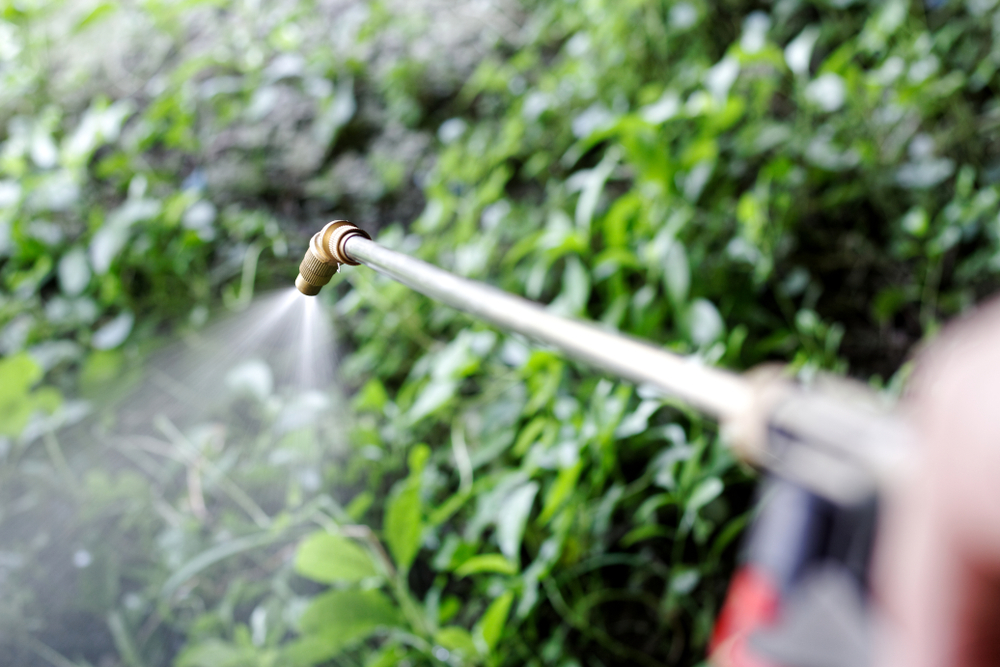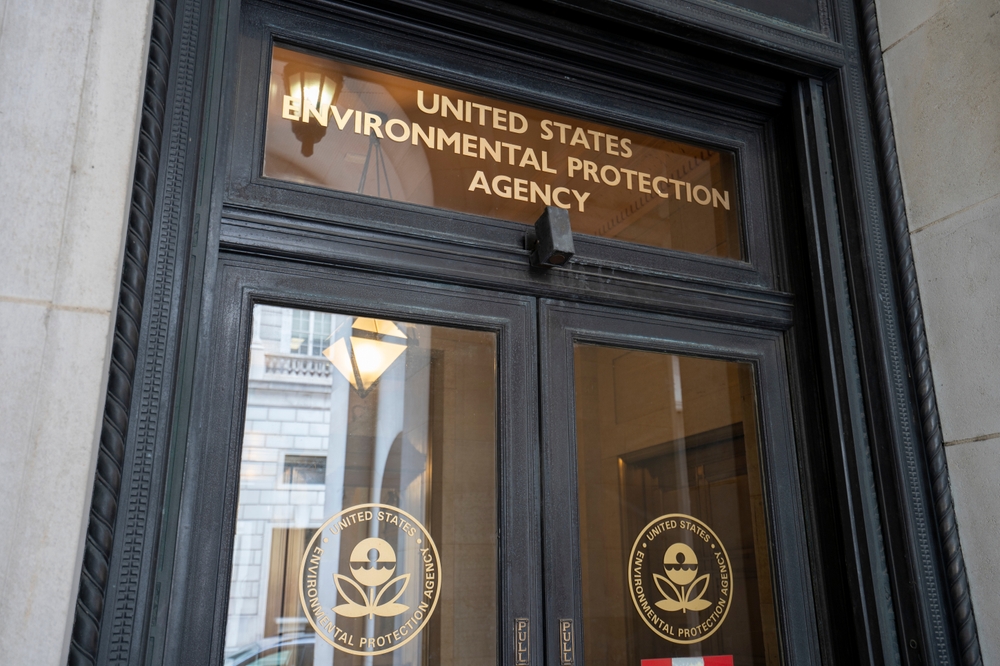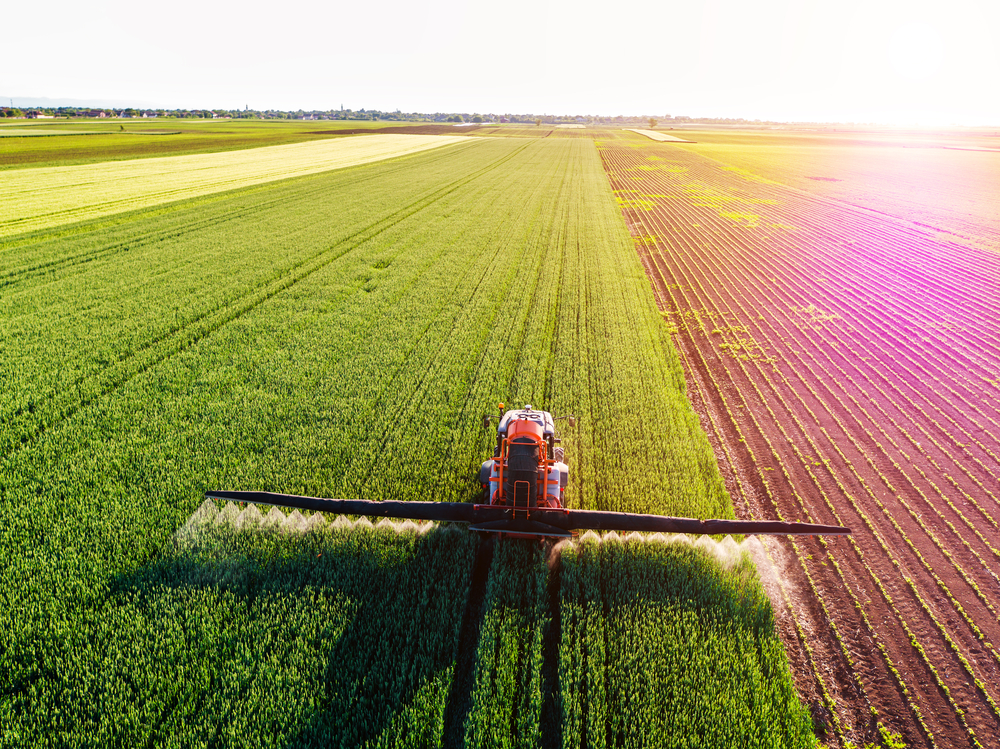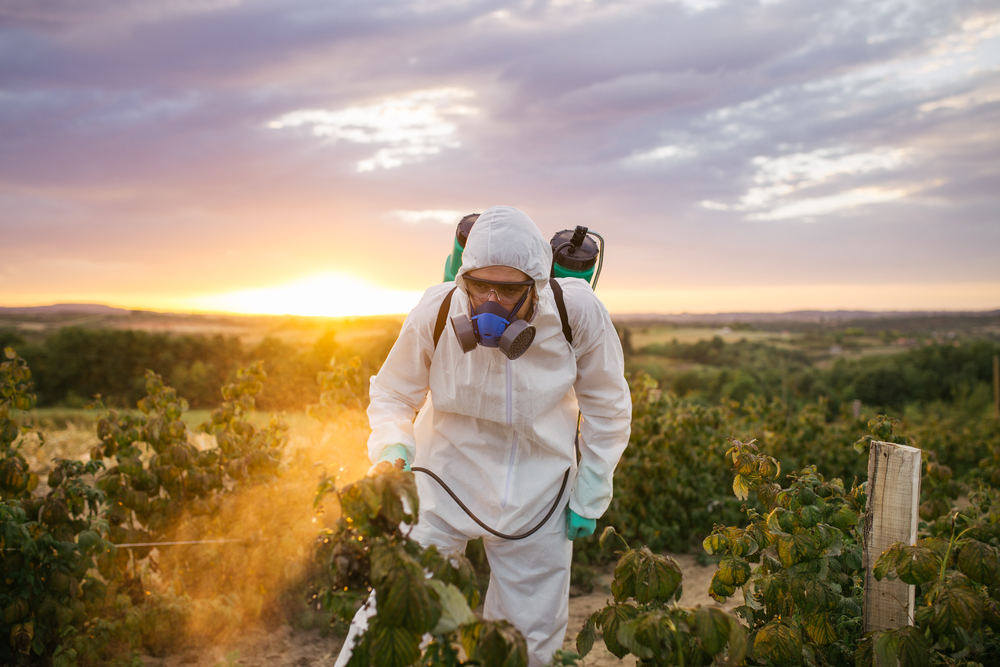The Hidden Health Risks of Paraquat
Paraquat is an effective and inexpensive herbicide. When applied correctly, it controls grass, vegetation and weeds incredibly well. American farmers and farmworkers have been using this herbicide since it arrived on the market in the 1960s.
In the last twenty years, as grass, vegetation and weeds have become resistant to other herbicides, paraquat use has increased in popularity amongst farmers and agricultural workers. But this popularity has come with deadly hidden health risks.

As with many pesticides, insecticides and herbicides, exposure to these chemicals place health risks on those using and applying the chemicals to crops. Anyone applying paraquat is required to be certified and trained using an EPA-approved training program before mixing, loading or applying paraquat.
The Dangers of Paraquat Exposure
Paraquat is toxic to people in small amounts. There is no antidote. If someone is exposed to paraquat, they must seek medical attention immediately. The immediate health damage to a person who ingests this herbicide depends on the amount consumed, the route of exposure (like swallowing or inhalation), exposure duration, and the person’s condition. Despite the best medical treatment in the country, a sip can kill.
Imagine a small-scale farmer or a farmworker who may only use a small amount of paraquat at a time. If the bottle only gets used a little at a time, the label could become dirty and challenging to read. A child could get a hold of the bottle and ingests paraquat without knowing how fatal it is.
Since 2000 in the U.S., there have been more than 17 deaths, including children, because paraquat was accidentally swallowed. The herbicide manufacturers have added safety measures such as a blue dye, a vomiting-inducing agent, and a smell to prevent paraquat from accidentally being swallowed.
In cases of accidental ingestion reported to the EPA, medical care was sought. But the damage caused by paraquat is simply too much for people to recover. Paraquat affects the lungs, kidneys, liver, and other exposed organs, causing devastating injuries.
While skin exposure is another method through which paraquat can enter the body, it can be less toxic. As small particles enter the body through the skin, they build up in the body – potentially contributing to Parkinson’s Disease and breathing difficulties. While these diseases and challenges are not life-threatening, they are life-altering.
Parkinson’s Disease Linked to Paraquat
Study after study has been conducted and came to the same conclusion – people exposed to paraquat are 2.5 times more likely to be diagnosed with Parkinson’s disease. Parkinson’s disease is a degenerative brain disorder that leads to tremors, difficulty walking, talking, balance and coordination. There is no cure.
Before the courts, there are multiple lawsuits against paraquat manufacturers being filed by farmworkers and former farmworkers diagnosed with Parkinson’s. These lawsuits allege that the farmworkers were exposed to paraquat regularly. The manufacturers failed to provide adequate protection to the risks of being exposed while working.
As part of an Illinois trial expected to begin in April, Hoffman V Syngenta, filed by ten former farmworkers diagnosed with Parkinson’s disease, a former Syngenta scientist and formerly the head of research and investigative toxicology Jon Heylings, has already been deposed. During his time working for Syngenta, Mr. Heylings raised alarms over the company’s paraquat formula. He requested that the paraquat formula be changed to include more additives that would induce vomiting and make paraquat less deadly.
Learn More: Paraquat Lawsuits
Difficulty Breathing Is Another Risk
Multiple studies worldwide highlight that exposure to paraquat and other chemical agents can negatively affect lung health and function, leading to wheezing, shortness of breath and chronic asthma. Paraquat exposure is known for causing these lifelong health challenges. Farmers’ and agricultural workers’ exposure to chemicals, including paraquat, mean that their life-altering conditions may take them away from their loved ones sooner – for simply working in the agricultural fields.
Many countries around the world have banned paraquat, including the European Union. Most recently, the U.S. has tried to ban the sale and application of paraquat to crops with H.R. 3817. The Protect Against Paraquat Act bill would have prohibited the sale and use of paraquat. The bill died in a previous congress – never receiving a vote.
While the U.S. continues to decide the next steps with paraquat, past and present farmworkers continue to be exposed to paraquat, putting their health and lives at risk.

















